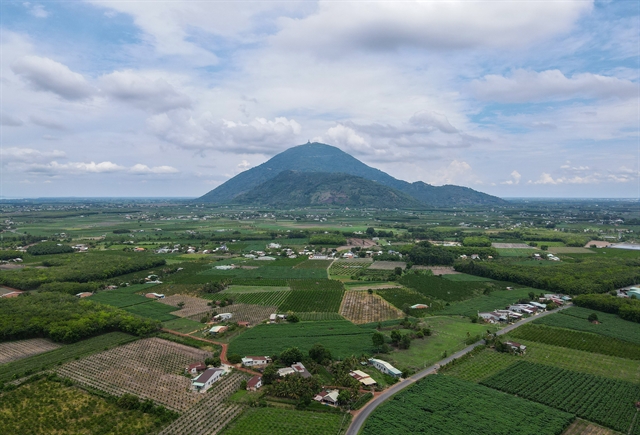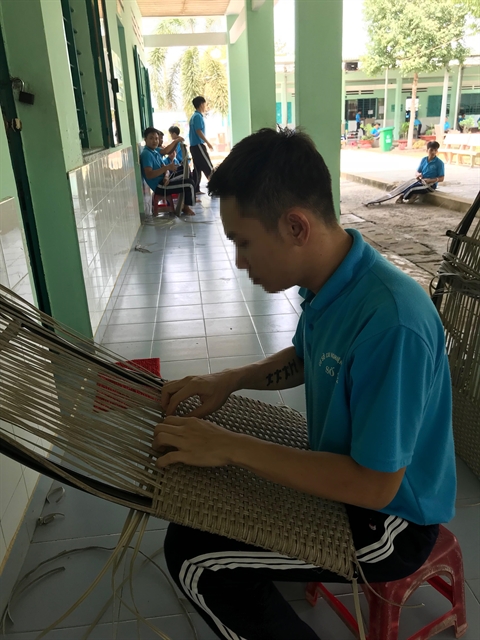 Society
Society

The ministries of Public Security and Justice should make clear that drug addiction is a disease and social evil, the vice chairman of the National Assembly's Committee for Social Affairs said at a two-day conference on legal policy on drug and HIV/ AIDS prevention opened on Thursday in HCM City.

|
| A person recovering from drug addiction works at a rehabilitation centre in Bình Dương Province. — VNS Photo Gia Lộc |
HCM CITY — The ministries of Public Security and Justice should make clear that drug addiction is a disease and social evil, the vice chairman of the National Assembly's Committee for Social Affairs said at a two-day conference on legal policy on drug and HIV/ AIDS prevention opened on Thursday in HCM City.
“If drug addiction is considered a disease, intervention to reduce damage and offer treatment should be provided. If it is considered a social evil, addicts should be isolated from society for rehabilitation,” vice chair Đặng Thuần Phong said.
These points of view should be made clear in order to have suitable legal policies, he added.
He instructed relevant agencies to suggest detailed policies on reducing the supply and use of drugs and the damages to society in the amended law on drug prevention and control.
Marie-Odile Emond, country director of UNAIDS Viet Nam and Convener of the Joint UN Team on HIV, said: “Legalize the globally and nationally adopted viewpoint that drug dependence is a health issue and drug-dependent persons are patients with chronic brain disease in need of long-term treatment process requiring comprehensive interventions including health care, psychological care and social support.”
Việt Nam’s Government should expand the scope of the Drug Law to regulate the prevention and treatment of drug use disorders, including interventions for reducing harms related to drug use, she said.
All compulsory drug detoxification and rehabilitation centres should be closed, but in the interim, the scope of detention should be minimised; legal safeguards for due process for application of detention should be maintained; and community-based treatment and rehabilitation should be further strengthened, she added.
Persons on opioid-substitution therapy should not be subject to detention in compulsory drug detoxification and rehabilitation centres, Emond said.
According to Cao Văn Thành, deputy head specialising in social evils prevention under the Ministry of Labour, Invalids and Social Affairs, the country has 102 establishments for drug treatment, including 97 public ones.
As of May, 53,335 people had been treated.
However, only 13 out of 63 provinces and cities had carried out community-based addiction treatment, providing services to 1,711 people.
Thành said that the amended law on drug prevention and control should have more detailed policies to encourage the private sector to open more establishments for treatment of addiction.
Colonel Hoàng Văn Hiều of the Ministry of Public Security, said that existing legal regulations called for fines of only VNĐ500,000 to VNĐ1 million (US$21.5-43) for each violation.
"After fines are imposed, relevant agencies do not manage the violators because there is no regulation in the law that addresses this task."
Many other delegates said that community-based treatment of addiction had been ineffective.
The chairmen of people’s committees in wards and communes had many tasks to do and could not be solely responsible for taking care of treatment for addicts in their locality, they said.
More effective, detailed solutions for community-based treatment of addiction were needed, they added.
The conference would also discuss legal policies relating to HIV/AIDS prevention. — VNS




